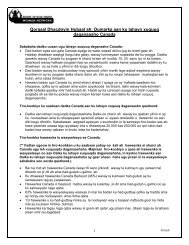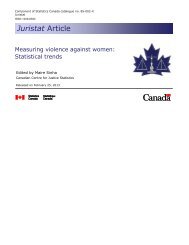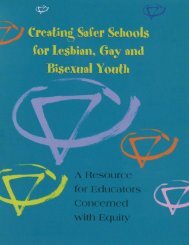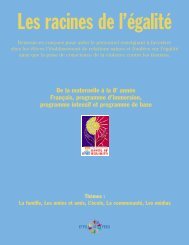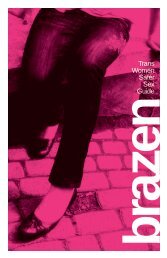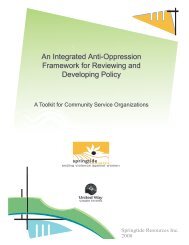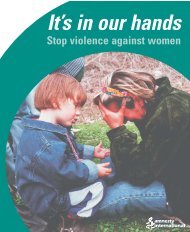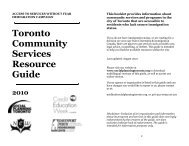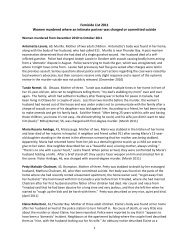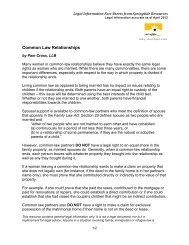Little eyes, little ears - Agence de la sante publique du Canada
Little eyes, little ears - Agence de la sante publique du Canada
Little eyes, little ears - Agence de la sante publique du Canada
Create successful ePaper yourself
Turn your PDF publications into a flip-book with our unique Google optimized e-Paper software.
<strong>little</strong> <strong>eyes</strong>,<strong>little</strong> <strong>ears</strong>Responding tochild disclosures 2When working with children,some may tell you theyare being abusedA child may tell you that someone is hurting him or her,that she worries about someone who may hurt her, or thathe is not taken care of properly or supervised at home.Ask the child if others are ever hurt whenMommy gets hurt. If the answer is yes, ask, “who?”If the child says “me” or another child such as asibling, call child protection services.If you are unsure how to respond, you can call theauthorities and ask for guidance.If you suspect a child is being abused, at risk ofabuse, or not having basic needs met, it is your legalresponsibility (in most parts of <strong>Canada</strong>) to call theappropriate child protection authority: see page 37.While you may consult a supervisor for guidance, if youheard the child disclose abuse or neglect, you must makethe call, and you must call immediately. Letting the childleave your agency before you make the report can puthim or her at risk.When a child makes adisclosure of abuse...... stop for a minute and take stock of the enormousresponsibility you have:appreciate how difficult it was to reveal a family secretassume the child has <strong>de</strong>ci<strong>de</strong>d that help is nee<strong>de</strong>d• un<strong>de</strong>rstand the risk to the child if you do not respondappropriatelyDisclosures of woman abuseA child may tell you that his or her mother is being hurt byher partner. In some parts of <strong>Canada</strong>, this is explicitly areason to involve the child protection authorities. Exposureto domestic violence may be seen as a form of emotionalharm or as a factor that elevates the likelihood a child willbe maltreated directly. If unsure of the situation in yourprovince or territory, consult your supervisor or ask thelocal police.Failure to act may discourage a child fromtelling anyone for a long time and p<strong>la</strong>cehim or her at risk of further harm.Allow the child totell his or her storyUse active listening. Do not pressure the child to talk.Remember that your role is not to gather evi<strong>de</strong>nce orcon<strong>du</strong>ct an investigation.34



